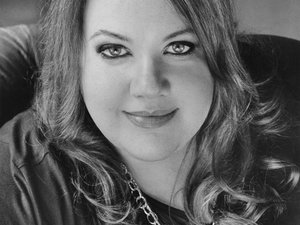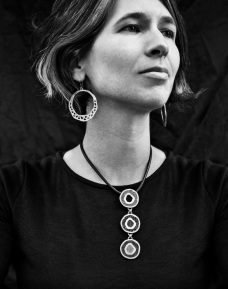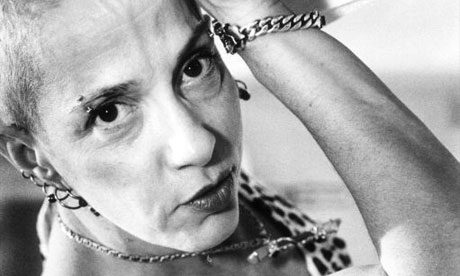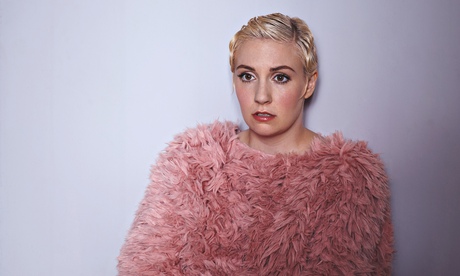In the media is a fortnightly round-up of features written by, about or containing female writers that have appeared during the previous fortnight and I think are insightful, interesting and/or thought provoking. Linking to them is not necessarily a sign that I agree with everything that’s said but it’s definitely an indication that they’ve made me think. I’m using the term ‘media’ to include social media, so links to blog posts as well as traditional media are likely and the categories used are a guide, not definitives.

On Friday, the death of Harper Lee, author of To Kill a Mockingbird was announced. Obituaries followed from Ed Pilkington and Matthew Teague in The Guardian; Eric Hamburger also in The Guardian; Casey N. Cep in The New Yorker, and The Irish Times, and appraisals of her work from Michiko Kakutani, ‘In Harper Lee’s Novels, a Loss of Innocence as Children and Again as Adults‘ in the New York Times; Sarah Churchwell, ‘Harper Lee: author battled to reconcile racial justice with a racially unjust society‘ and Elaine Showalter, ‘Harper Lee: an American novelist deserving of serious attention‘ both in The Guardian; Michelle Dean, ‘Did Go Set a Watchman spoil Harper Lee’s literary legacy?‘ in The Guardian; Katy Waldman, ‘What Is Harper Lee’s Legacy After Go Set a Watchman?‘ on Slate, and Alex Clark, ‘Why Harper Lee’s To Kill a Mockingbird endures to tell its tale of radical change‘ in The Observer
You might have heard that a fortnight ago Beyoncé released a new song ‘Formation’ which she went on to perform at the SuperBowl. Lots of people had lots to say about it. LaSha wrote, ‘Kendrick Lamar won’t face backlash like Beyoncé: Socially conscious art, sexual expression and the policing of black women’s politics‘, Priscilla Ward wrote, ‘White Beyoncé haters don’t get it: “Formation” isn’t “race-baiting” — but it is unapologetically about race‘ both on Salon; Banseka Kayembe wrote, ‘Beyonce Gets Political: Here’s Why it Matters‘ on the Huffington Post; Shantrelle Lewis wrote, ‘“Formation” Exploits New Orleans’ Trauma‘ on Slate; Nikita Richardson did ‘A Deep Dive into the Important, Unapologetic Blackness of Beyoncé’s ‘Formation’‘ on Hello Giggles; Suzanne Moore said, ‘Black Pride at the Super Bowl? Beyoncé embodies a new political moment‘ in The Guardian; The Pool asked, ‘Four women on what Beyoncé’s Formation means to them‘, and Anna Leszkiewicz said, ‘Beyoncé and #BlackLivesMatter: why “Formation” is her most radical release to date‘ in the New Statesman.

Last weekend was Valentine’s Day; there was plenty of writing around that too. Emma Dowling wrote, ‘Love’s Labour’s Cost: The Political Economy of Intimacy‘ on Verso Books; Eleanor Franzén wrote ‘V Daze‘ on Elle Thinks; Eileen Myles, ‘on the Excruciating Pain of Waiting for Love‘ and Heather Haverilesky, ‘What Romance Really Means After 10 Years of Marriage‘ on The Cut; Marie Phillips wrote, ‘What I learnt from a year of being in love‘ and Emer O’Toole shared, ‘The Rules, and how I fell in love‘ both on The Pool; Lauren Duca asked, ‘Is There Such a Thing As a Feminist Marriage Proposal?‘, Laura June revealed, ‘What I Thought Romance Meant, Age 12–Present‘ and Meaghan O’Connell told us, ‘Getting Married in One Week Was the Most Romantic Thing I Ever Did‘ all in The Cut; Emma Flowers wrote, ‘Finding, Nearly Losing and Finally Building Love Across Two Genders‘ on the Huffington Post; Heidi Julavits on ‘My High-School Boyfriend, the Con Artist‘ in The Cut; Tiffany Yannetta wrote, ‘Lights, Camera, Love‘ on the history of dating shows on Racked, and Alana Massey said, ‘Tinder Is the New Meet-Cute‘ in The Cut.
Congratulations to Ríona Judge McCormack who won the inaugural Galley Beggar Press short story competition with ‘Blackburn‘. And The Stella Prize announced its 12 book longlist for 2016.

The best of the rest:
On or about books/writers/language:
- Janet Ellis,‘I submitted my book under a pseudonym’ in The Telegraph
- Sarah Pinborough, ‘“The first outline was way more weird than the final novel” – on writing 13 Minutes‘ on One Book Lane
- Katherine Clements, ‘The Real Wicked Lady‘ on The History Girls
- Elen Caldecott, ‘Children’s books: a middle class ghetto?‘ in The Guardian
- Grady Hendrix, ‘Beloved: The Best Horror Novel the Horror Genre Has Never Claimed‘ on Tor.Com
- Laura Malonee, ‘The Subversive Women Who Self-Publish Novels Amid Jihadist War‘ on Wired
- Cathy Retzenbrink, ‘Lucy Kalanithi, a mourning wife on her husband’s brilliant legacy‘ on The Pool
- Susan Burton, ‘The Quietly Subversive Fictions of Dana Spiotta‘ in The New York Times
- Lisa Levy, ‘The Fine Grim Line Between Love and Stalking: On the Crime Fiction of Caroline Kepnes‘ on Literary Hub
- AFP, ‘Love, Rage, Silence: Secret Lives of Afghanistan’s Female Poets‘ in The Express Tribune
- Belinda McKeon, ‘The Night that Sylvia Plath Met Ted Hughes‘ on Literary Hub
- Edan Lepucki, ‘The Anxiety of Influence: Children’s Books and Their Grown-Up Counterparts‘ on The Millions
- Emily Harnett, ‘When Art Cannot Console Us In Death‘ on Literary Hub
- Anna Hope, ‘The inspiration for an asylum set on the Yorkshire Moors‘ on the Penguin blog
- Rosalind Harvey, ‘A Response to “Beyond Bolaño and Beyond”‘ on Full Stop
- Lisa McInerney, ‘Writers on Location: on Cork City‘ on The Literary Sofa
- Melissa Keil, ‘When is YA going to shape up to body diversity?‘ in The Guardian
- Maddie Crum ‘Some Books Just Aren’t Made To Be Adapted For The Screen, And That’s OK‘ on Huffington Post
- Gila Lyons ‘Female Friendships and Online Literary Sexism‘ on The Rumpus
- Polly Vernon, ‘All the attention came from women telling me how stupid my book was‘ in The Guardian
- Kathryn Evans, ‘How writing YA helped me make sense of my childhood‘ on Scottish Book Trust
- Robert McCrum, ‘The 100 best nonfiction books: No 3 – No Logo by Naomi Klein (1999)‘ in The Guardian
- Tracy McVeigh, ‘Ferrante fever sees ‘dangerous’ Naples turn into a tourist hotspot‘ in The Observer
- Valerie Grove, ‘My hero: Margaret Forster‘ in The Guardian
- Sarah Crompton. ‘Girl, uninterrupted: staging Eimear McBride’s chaotic masterpiece‘ in The Guardian
- William Deresiewicz, ‘Where Have You Gone, Annie Dillard?‘ on The Atlantic
- Kavita Das, ‘On Parsing‘ on VIDA
- Emily Sipiora, ‘Françoise Sagan and Luxury Existentialism‘ in The Northwest Review of Books
- Katie Cotton, ‘Women in picture books: are we there yet?‘ on Scottish Book Trust
- Martin Chilton, ‘How Valley of the Dolls went from a reject to a 30-million best-seller‘ in The Telegraph
- Candy Gourlay and Laura Dockrill, ‘Why we love enchantment in children’s books‘ in The Guardian
- Daniel Peña, ‘Octavia Butler’s Notebook Represents All The Anxieties Of Writers Of Color‘ on Ploughshares
- Niina Pollari, ‘The Marvelous Bonfire‘ on Catapult
- Nandini Balial, ‘On Finding Yourself in the Work of Jhumpa Lahiri‘ on Literary Hub
- Siyanda Mohutsiwa, ‘I’m Done With African Immigrant Literature‘ on Okay Africa
- Andrew Harrison, ‘Framed! Meet the creators shaking up modern comics‘ in The Guardian
- Claire Armitstead, ‘Margaret Forster, award-winning author, dies at 77‘ in The Guardian
- Hannah Tennant-Moore, ‘The Best Literary Writing About Sex‘ on Literary Hub
- Catherine Nichols, ‘One Weird Trick That Makes a Novel Addictive‘ on Jezebel
- Eleanor Franzén, ‘On Culture: The Dark Side of Beatrix Potter‘ on Litro
- Máire T Robinson, ‘Sheela-na-gigs and writing what you don’t know‘ in The Irish Times
- Chibundu Onuzo, ‘Yes, I’m black. But an ethnic minority? Forget it‘ in The Guardian
- Anne Boyd Rioux, ‘Eight Classic Female Bildungsromane You Should Know About If You Don’t Already‘ in The Toast
- Esther Kuforiji, ‘Stories of Blackness — Chapter 4: Literary Festivals‘ on Medium
- Julia Eccleshare, ‘Gillian Avery obituary‘ in The Guardian

Personal essays/memoir:
- Liz Dashwood, ‘Grown-ups are allowed to have meltdowns, too‘ on The Pool
- Joyce Maynard, ‘What Luck Means Now‘ in The New York Times
- Erin Lee Carr, ‘Still Rendering‘ on Medium
- Danielle Bacher, ‘My Autistic Brother’s Quest for Love‘ in Esquire
- Bruna Dantas Labato, ‘Notes on Record-Keeping‘ on Ploughshares
- Joanna Horton, ‘Hard Luck: On Motherlessness‘ in The Toast
- Edan Lepuki, ‘The Secret, Magical Underwear That Only Moms Know About‘ in The Cut
- Kim Pittaway, ‘After‘ on Hazlitt
- Jennifer Hanks, ‘Somewhere Across The Sea‘ in Lumen
- Nicolette Loizou, ‘Travelling in Fiji‘ on Litro
- Esther Schor, ‘My Last JDate‘ in Tablet
- Antonia Honeywell, ‘I was driven out of my beloved church by homophobia‘ in The Telegraph
- Marian Keyes , ‘on the Agony of Small Goodbyes‘ on The Pool
- Susan Shapiro, ‘Both Sides Now‘ on Tablet
- Carmen Maria Machado, ‘The Moon Over the River Lethe‘ on Catapult
- Sarai Walker, ‘Yes, I’m Fat. It’s O.K. I Said It.‘ in The New York Times
- Miriam Foley, ‘Remembering Román‘ on Litro
- Susan Daitch, ‘Treasure Hunters‘ on Guernica
- Farah Róisín, ‘Why Them?‘ on Hazlitt

Feminism:
- Anna James, ‘What’s behind the lack of female pilots?‘ on The Pool
- Jia Tolentino, ‘What Should We Say About David Bowie and Lori Maddox?‘ on Jezebel
- Laura Munoz, ‘To Men I Love, About Men Who Scare Me‘ on Medium
- Dolly Alderton, ‘Hey, spurious polls. This is the *perfect* woman‘ on The Pool
- Emma Lindsay, ‘What I Learned From Dating Women Who Have Been Raped‘ on Medium
- Caroline O’Donoghue, ‘On the sad inevitability of the grown man and the teenage girl‘ on The Pool
- Caroline Criado-Perez, ‘Companies are to publish their gender pay gaps – but will this lead to financial equality?‘ on the New Statesman
- Louise O’Neill, ‘I wonder if my ex-boyfriends thought female sexuality was something to be laughed at‘ in the Irish Examiner
- Sandra Newman, ‘Woman Facts‘ on McSweeney’s
- Robyn Wilder, ‘Why is the P-word so cringingly awful?‘ on The Pool
- Rebecca Solnit, ‘The Case of the Missing Perpetrator‘ on Literary Hub
- Sophie Mayer, ‘The Legend of Greenham Common Women’s Peace Camp‘ on Berfrois
- Sady Doyle, ‘Progressive‘ on her Tumblr
- Aricka Foreman and Mimi Wong, ‘Except, All Of Us: Women & the Myth of Safety‘ on The Offing
- Laura June ‘When You’re Pregnant, Nothing Seems in Your Control‘ on The Cut

Society and Politics:
- Kyla Marshell, ‘The Other World Where Everyone Lives‘ in The Blueshift Journal
- Elspeth Reeve, ‘The Secret Lives of Tumblr Teens‘ on New Republic
- Michelle Goldberg, ‘Is a Surrogate a Mother?‘ on Slate
- Alana Massey, ‘Checking Your Date’s Instagram Isn’t ‘Stalking,’ It’s Research‘ on The Cut
- Meena Kandasamy, ‘“I Am An Anti-National…Count Me Out”‘ on Outlook
- Aaminah Khan, ‘I Don’t Need White Progressives Telling Me, A Queer Muslim, About Homophobia In Islam‘ on Harlott
- Lisa Rab, ‘Poverty in Charlotte: ‘It Was Never Okay’‘ in Charlotte Magazine
- Beulah Maud Devaney, ‘Which Cities Would Be Most Likely to Survive a Zombie Apocalypse?‘ on City Metric
- Jihan Crowther ‘What Dating Abroad Taught Me About Stateside Racism‘ on Jezebel
- Jaya Saxena, ‘Some Unorganized Mixed Race Thoughts‘ in The Toast
- Lineal Ajello, ‘More and More War Stories‘ on Guernica
- Susan Gillman, ‘Remembering Slavery, Again‘ in The Los Angeles Review of Books
- Eleanor Margolis, ‘The new young fogeys‘ in The New Statesman
- Emiko Jozuka, ‘The Woman Who Makes Prosthetic Pinkies for Ex-Yakuza Members‘ on Motherboard

Film, Television, Music, Art, Fashion and Sport:
- Joy Resmovits, ‘The UCLA gymnast who became a viral sensation by just being herself on the floor‘ in the LA Times
- Elizabeth Day, ‘Happy Valley’s women: flawed, funny and completely brilliant‘ on The Pool
- Elizabeth Sankey, ‘In praise of Ab Fab, female friendship and not caring what other people think‘ on The Pool
- Lorrie Moore, ‘The Shame of Wisconsin‘ in The New York Review of Books
- Caroline O’Donoghue, ‘Superheroes have to deal with the same problems the rest of us do‘ on The Pool
- Alexandra Molotkow, ‘The Uncomfortable Power of Pop-Music Cruelty‘ on The Cut
- Hannah Giorgia, ‘Why Do Black Women In Movies Have To Choose Between A Weave And A Relationship?‘ on Buzzfeed
- Cali Hughes, ‘Red is so much more than a colour. It’s a state of mind.’ on the 4th Estate blog
- Lisa Owens, ‘Does Don’t Tell The Bride actually contain the secrets to a happy life?‘ on The Pool
- Lisa Hix, ‘Out of the Shadow of Aunt Jemima: The Real Black Chefs Who Taught Americans to Cook‘ on Collectors Weekly
- Jamie Lauren Keiles, ‘I’m a Hat Person Now‘ on The Cut

The interviews:
- Elizabeth Strout in The Guardian
- Kelly Link on The Millions
- Elena Ferrante in The Gentlewoman
- Idra Novey on Hazlitt, Electric Literature, Weird Sister and Literary Hub
- Janet Ellis in The Bookseller
- Hilary Spiers on Greenacre Writers
- Ann Neuman and Sheri Fink in Guernica
- Marie Annhearte Baker in Room
- Marjorie Liu in Guernica
- Jhumpa Lahiri on Slate, the Wall Street Journal and Literary Hub, Parts One and Two
- Belinda McKeon on Electric Literature
- Lucy Kalanithi in The Guardian
- Sara Majka on Electric Literature
- Salena Godden on The Woven Tale Press
- Marina Warner on The Literateur
- Ann Goldstein on NPR
- Antonia Honeywell on Greenacre Writers
- Angela Flournoy on The Rumpus
- Sarah Perry on Radio Praha
- Meg Rosoff in The Guardian
- Han Kang on Literary Hub
- Joanna Walsh in Tank
- Alida Nugent on The Rumpus
- Natasha Wimmey on Broadly
- Caroline Bergvall on Asymptote
- Jo Bloom in Psychologies
- Elizabeth McKenzie on Literary Hub
- Sharon Guskin in The Bookseller
- Cate Kennedy on Paul McVeigh’s website
- Sara Gruen and Sarah McCoy on Salon
- Gillian Slovo in The Observer
- Melissa Green in the Los Angeles Review of Books

The regular columnists:
- Laurie Penny in The New Statesman
- Lucy Mangan in Stylist
- Roxane Gay in The Guardian US
- Yasmin Alibhai-Brown in The Independent
- Caitlin Moran in The Times
- Lauren Laverne in The Pool
- Ella Risbridger in The Pool
- Sali Hughes in The Pool
- Bim Adewunmi in The Guardian
- Sophie Heawood in The Guardian
- Eva Wiseman in The Observer
- Tracey Thorn in The New Statesman
- Chimene Suleyman and Maya Goodfellow on Media Diversified
- Josie Pickens on Ebony
- Bridget Christie in The Guardian
- Lizzy Kremer on Publishing for Humans
- Juno Dawson in Glamour









































